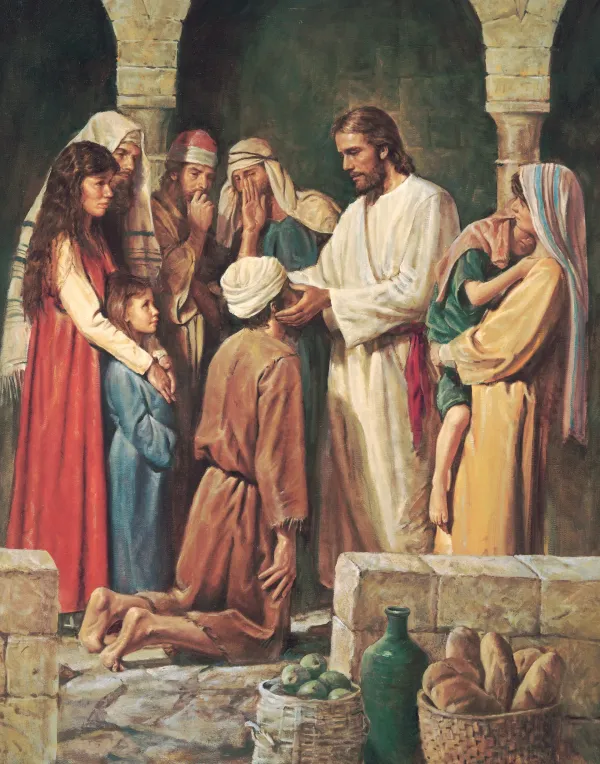7 September 2025
Callings and other ways we embark in God’s work uniquely prepare us to meet the Savior.

Sacrament Meeting Program
Presiding: Bishop Serge St. Felix
Conducting: Brother Alan Riker
Opening Hymn: #289 - Holy Temples on Mount Zion
Invocation: By Invitation
Ward Business
Sacrament Hymn: # 173 - While of the Emblems We Partake
Administration of the Sacrament
Testimony Meeting
Closing Hymn: #1035 - As I Keep the Sabbath Day
Benediction: By Invitation
Messages from General Conference
Participate to Prepare for Christ's Return
By Elder Steven D. Shumway
Of the Seventy
We engage in God’s work not because God needs us but because we need God and His mighty blessings. He promises, “For, behold, I will bless all those who labor in my vineyard with a mighty blessing.” Let me share three principles that teach how our participation in God’s work blesses and helps us prepare to meet the Savior.
First, as we participate, we progress toward “the measure of [our] creation.”
We learn this pattern in the account of the Creation. After each day of labor, God acknowledged the progress made by saying, “It was good.” He did not say the work was finished nor that it was perfect. But what He did say was that there was progress, and in God’s eyes, that is good!
Callings do not determine or validate a person’s worth or worthiness. Rather, as we labor with God in whatever way He asks, we grow into the measure of our own creation.
God rejoices in our progress, and so should we, even when we still have work to do. At times we may lack the strength or the means to serve in a calling. Still, we can engage in the work and protect our testimonies through meaningful ways like prayer and scripture study. Our loving Heavenly Father does not condemn us when we are willing but unable to serve.
Second, serving elevates our homes and churches into holy places where we can practice covenant living.
For example, our covenant to always remember Christ is made individually, but this covenant is lived as we serve others. Callings surround us with opportunities to “bear … one another’s burdens, and so fulfil the law of Christ.” When we serve because we love God and want to live our covenants, service that seems dutiful and draining becomes joyful and transformative.
Ordinances don’t save us because they fulfill a heavenly checklist. Rather, when we live the covenants connected with these ordinances, we become the kind of person who wants to be in God’s presence. This understanding overcomes hesitations to serve or preferences not to serve. Our preparation to meet Jesus Christ accelerates when we stop asking what God will permit and start asking what God would prefer.
Third, participating in God’s work helps us receive God’s gift of grace and feel His greater love.
We do not receive financial compensation for serving. Instead, scripture teaches that for our “labor [we are] to receive the grace of God, that [we] might wax strong in the Spirit, [have] the knowledge of God, [and] teach with power and authority from God.” That is a very good trade!
Because of God’s grace, our abilities or inabilities are not the principal basis for extending or accepting a calling. God does not expect perfect performance or exceptional talent to participate in His work. If so, Queen Esther would not have saved her nation, Peter would not have led the early Church, and Joseph Smith would not be the Prophet of the Restoration.
As we act in faith to do something beyond our abilities, our weakness is exposed. This is never comfortable, but it is necessary for us to “know that it is by [God’s] grace … that we have power to do these things.”
We will fall many times as we engage in God’s work. But in our effort, Jesus Christ catches us. He gradually lifts us to experience salvation from failure and fear and from feeling like we will never be enough. When we consecrate our meager but best effort, God magnifies it. When we sacrifice for Jesus Christ, He sanctifies us. This is the transformative power of God’s grace. As we serve, we grow in grace until we are prepared to “be lifted up by the Father, to stand before [Jesus Christ].”





